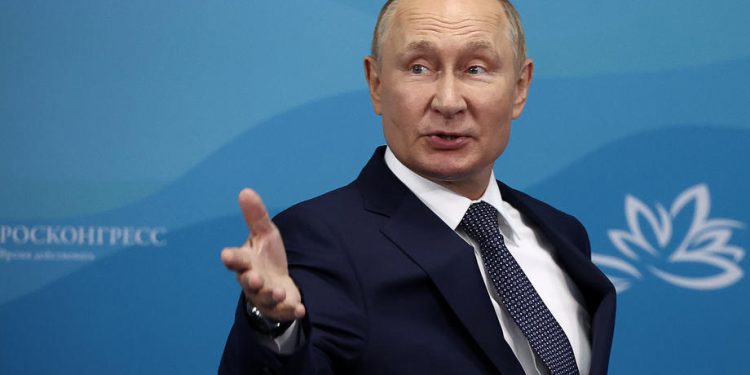In an announcement at a ceremony honouring Ukraine war veterans, Russian President Vladimir Putin confirmed his candidacy for the 2024 presidential election, extending his rule until at least 2030.
Artyom Zhoga, a decorated Ukraine war veteran, initiated the request for Putin’s candidacy during the event where Putin awarded Ukraine war veterans with the Hero of Russia gold star.
“I will not hide that I have had different thoughts at different times, but it is now time to make a decision,” Putin stated, addressing Zhoga and other decorated soldiers. “I understand that there is no other way,” he added.
Putin, 71, has surpassed previous Russian leaders in his tenure, with his presidency commencing on the last day of 1999. Despite opposition politicians dismissing the election as a facade of democracy, Putin’s victory in 2024 is considered certain, given state support, media influence, and minimal public dissent.
The war in Ukraine, Western sanctions impacting the economy, and internal strife pose significant challenges to Putin’s Russia. The West perceives Putin as a war criminal and dictator, accusing him of imperialistic actions in Ukraine.
“When in Europe and the United States they say that Russia and the Russians are Putin – that is not right. I am not a supporter of collective guilt,” expressed Yekaterina Duntsova, an opposition candidate for president, reflecting on the fear felt by opposition activists and journalists.
Despite gloating over the perceived failure of Western sanctions, Russia’s internal fault lines are exposed. Putin’s leadership is characterized by a bureaucratic system under a single authority and a crackdown on dissent, discouraging intellectual contributions.
As Russia marks 32 years since the Soviet Union’s 1991 breakup, the hope for democratic openness has given way to fear among opposition activists and journalists. Alexei Navalny, a jailed opposition figure, warns of Putin leading Russia toward ruin with a corrupt and brittle system.
Amidst the uncertain end to the Ukraine war, Putin’s 2024 candidacy signals a continuation of his long-standing dominance in Russian politics.
Relationship with Africa
Russia’s influence in Africa is on the rise as it forges alliances with military leaders in Niger, Burkina Faso, and Mali.
This expansion has raised concerns in the West, facing criticism for its historical exploitation of Africa without fostering mutually beneficial agreements.
Presently, Russia is actively engaging with African leaders, negotiating agreements for the establishment of power plants across the continent.



